Deeper Learning for Students with Disabilities
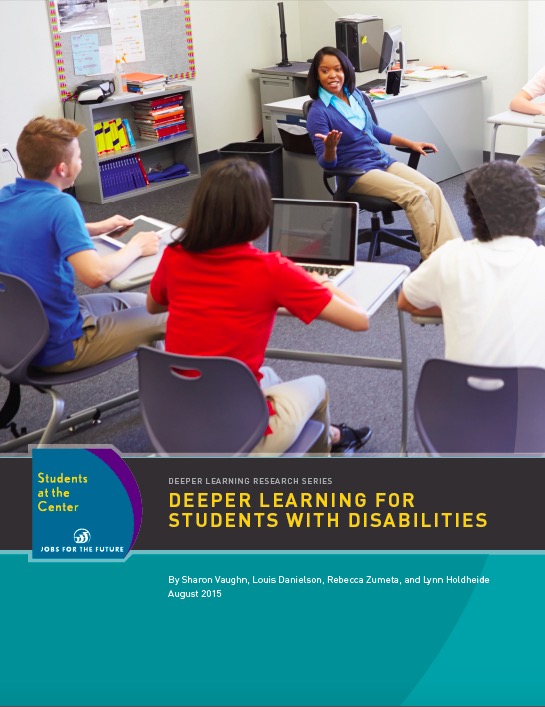
This report focuses on deeper learning for students with disabilities. The U.S. Department of Education’s Office of Special Education Programs now requires states to fully disclose the precise steps they will take to ensure better outcomes for students with disabilities. This new requirement can aid educators in implementing effective practices for providing deeper learning opportunities… Read More ›
Reimagining Parent Engagement in California: Moving from 1.0 to 2.0
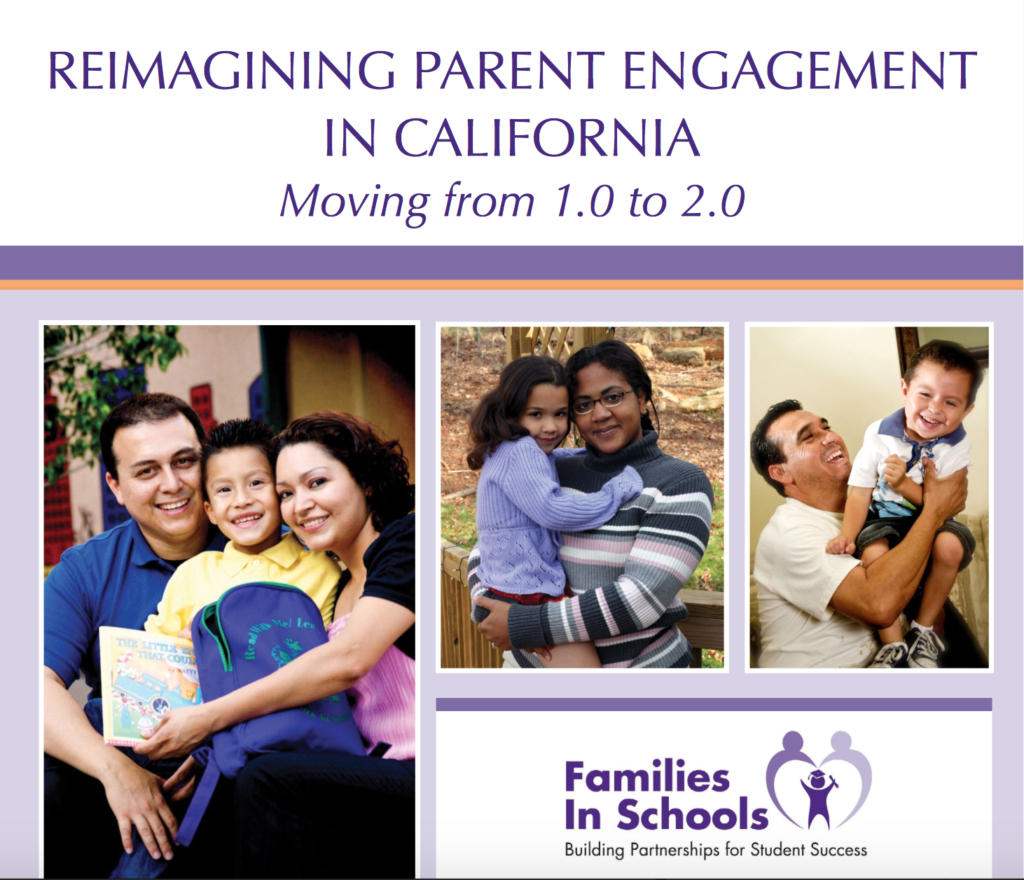
This report explores the characteristics of family-friendly schools. It presents clear indicators in key areas: welcoming environment, effective family-school communication, meaningful resources, shared leadership, conflict resolution, and financial resources. Though designed by family advocates to help the state of California create regulations, this guide could be used by any school to asses its level of family… Read More ›
Know Your Rights/ Derechos Educativos Federales Folleto
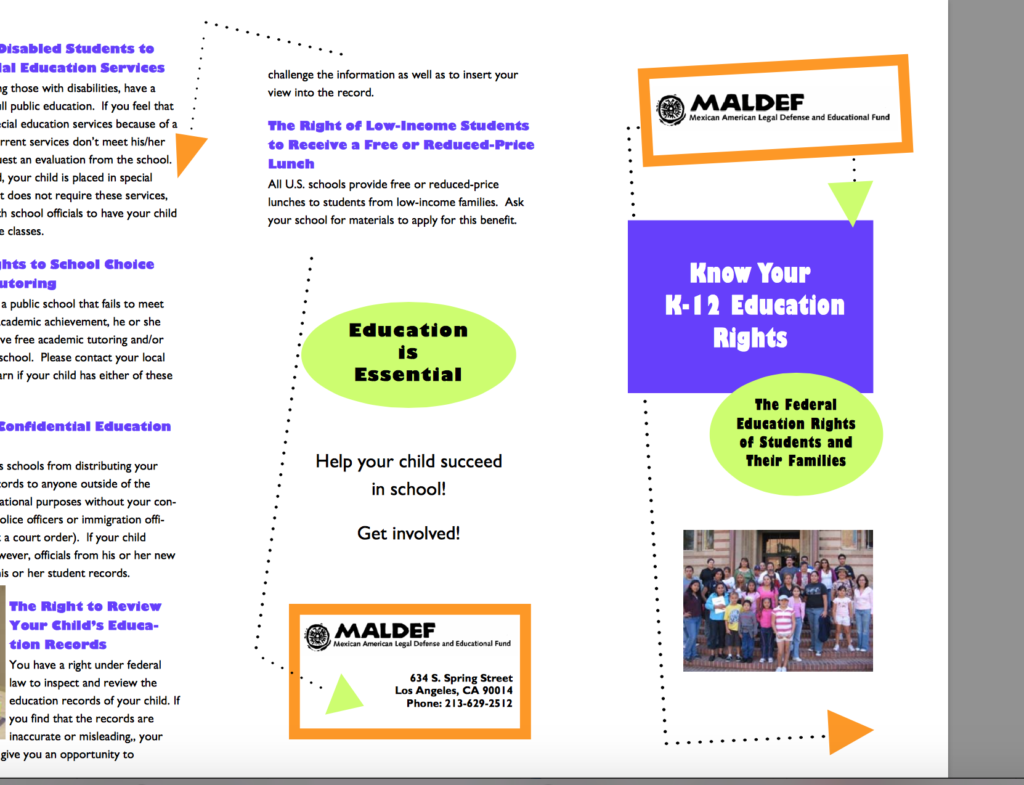
This pamphlet developed by the Mexican American Legal Defense and Educational Fund describes federal education laws relevant to parents. Using parent-friendly language it provides an overview of the right to review your child’s records, the right of disabled students to receive special education services, the right of immigrant students to equal access to k-12 public… Read More ›
Creating the Future of Learning

May 12, 2015, 4:00 pm – 5:00 pm Overview Having a window into the disruptions that will reshape learning over the next decade allows us to respond creatively rather than to fear how we can prepare learners for an uncertain future. Especially, when education is potentially facing a decade of deep disruption of the scope… Read More ›
An Introduction to Competency-Based Education

Friday, April 3rd, 10:00am – 11:00am ET On Friday, April 3, iNACOL will host a Special Webinar featuring Susan Patrick, President and CEO of iNACOL, and Sandra Dop of the Iowa Department of Education. The concept is simple: learning is best measured by students demonstrating mastery, rather than how much time is spent in a… Read More ›
Building Consensus and Momentum: A Policy and Political Landscape for K-12 Competency Education

This report by KnowledgeWorks’, with support from the Nellie Mae Education Foundation, addresses three policy areas to focus on in building an educational system that supports competency education. By focusing on these areas, states would be given the flexibility needed to innovate, evaluate, and build systems that positively impact student achievement. Competency education cannot be… Read More ›
Let’s Get Real: Deeper Learning at Work
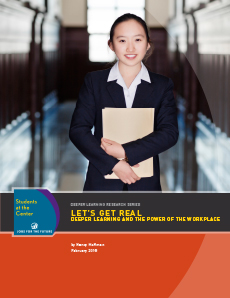
While policymakers often use the phrase “college and career readiness” to describe the goals of K-12 education, the truth is that most school reform initiatives focus on college readiness alone. Career readiness is often treated as an afterthought, as if it were just a side-effect of completing a college-prep curriculum and not something to be… Read More ›
Determining Proficiency Levels and Establishing Scoring Criteria

Once educators in districts have completed the important task of identifying graduation standards and performance indicators, the next step in our Proficiency-Based Simplified model is to establish scoring criteria. Informing and supporting the clear articulation of what student work looks like at each of the four distinct performance levels on each performance indicator is a… Read More ›
SXSWedu

The SXSWedu® Conference & Festival fosters innovation in learning by hosting a diverse and energetic community of stakeholders from a variety of backgrounds in education. The four-day event affords registrants open access to engaging sessions, interactive workshops, hands on learning experiences, cinematic portrayals, early stage startups and a host of networking opportunities. By providing a… Read More ›
More than College Readiness: Engaging Students in Work and Civic Life
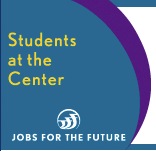
When discussing the purposes of secondary education, policymakers often speak of a trio of aims: High schools should prepare all students for college, careers, and civic life. But, in truth, while major recent reform initiatives have focused a great deal of attention on the first of those goals—ensuring that students become “college ready”—they have done… Read More ›
Youth On Board

This website, a program of YouthBuild USA, facilitates/co-facilitates a number of groups to develop young leaders and give them a voice in education reform. Of note, the Boston Student Advisory Council (BSAC) involves representatives from each local high school in decision-making at Boston Public Schools, addressing issues such as small school design, school safety, graduation… Read More ›
Young Voices
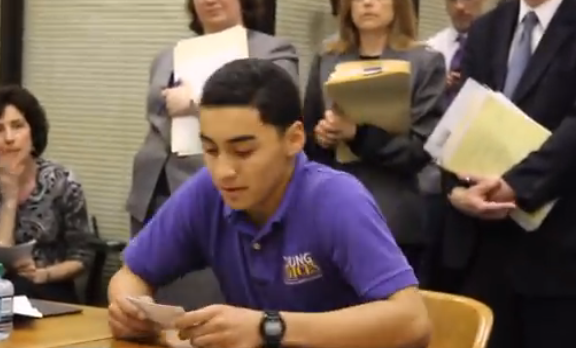
This website works to empower low-income urban youth to become leaders in communities across Rhode Island, advocating for policy changes. At the district and local levels students conduct research, make policy recommendations, and work with school leaders to increase graduation and attendance rates. At the state-level youth have testified at hearings on state education funding… Read More ›